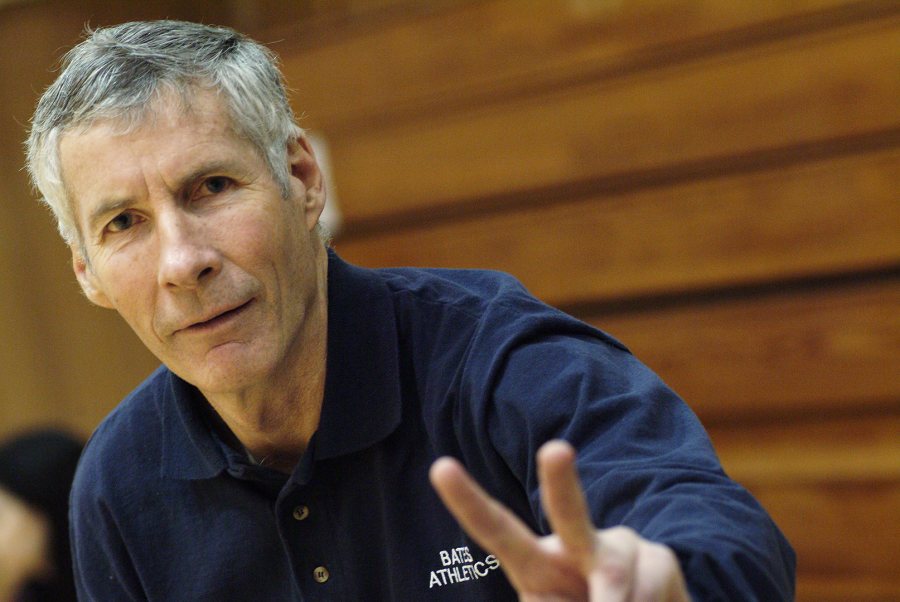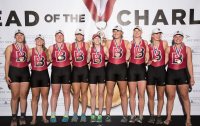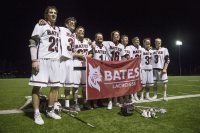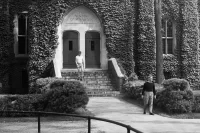
Bates women’s basketball coach Jim Murphy retires after 21 seasons, 343 victories and six NCAA appearances
After 21 seasons, 343 victories and six NCAA Tournament appearances, Jim Murphy is retiring as head coach of the Bates College women’s basketball team, effective at the end of the 2014–15 academic year.
The Bates Department of Athletics will immediately begin a national search for the team’s new head coach.
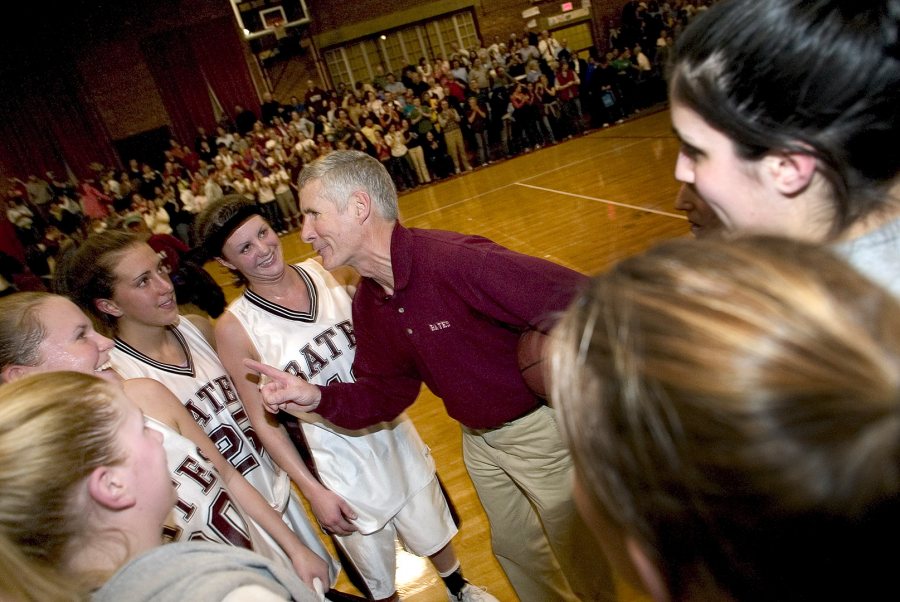
Jim Murphy congratulates his team after a win vs. Bowdoin on Feb. 1, 2005. The victory was the 200th in Murphy’s career, en route to 343 career victories. (Phyllis Graber Jensen/Bates College)
Murphy, who also coached women’s soccer at Bates between 1994 and 2011, “has been one of the most successful coaches that we have ever had at Bates College,” said Director of Athletics Kevin McHugh.
“Throughout his tenure he has led his programs with the utmost integrity, an amazing work ethic and a passion for excellence. Beyond the multitude of achievements, Jim’s outstanding leadership is also reflected in the scores of young women who played for him and have gone on to distinguish themselves after their Bates careers.
“Jim always brought a sense of humor and has been a quiet, steadfast influence, instrumental in the development of our younger staff. He will be sorely missed but remembered fondly.”
Murphy has led the women’s basketball program through 21 of its 47 years in existence, and is the program’s longest-tenured coach by far. Murphy entered the 2014–15 season ranked 49th among active Division III coaches in career wins (333), and finishes his career with a 343–187 record — a winning percentage of .647.
A 1969 graduate of Bates, Murphy taught English for 24 years at Masconomet Regional High School in Topsfield, Massachusetts, where he coached the girls’ soccer team to a 269–40–16 record and the girls’ basketball team to a 132–31 mark. Murphy returned to his alma mater in 1994 to lead the women’s varsity soccer and basketball programs.
At Bates, he spearheaded an almost immediate turnaround in the basketball team’s fortunes. Murphy led the Bobcats to a 17–7 mark in his second season, 1995–96, kicking off a run of 15 consecutive winning seasons. Bates competed in the NCAA Division III Tournament for the first time in 1996–97, finishing 20–5, then returned to the NCAAs for three more years in a row, including a Sweet Sixteen appearance in 1997–98.
Bates reached new heights in 2004–05, earning the No. 1 national ranking for four weeks and finishing 25–3 with a second NCAA Sweet Sixteen appearance. Bates returned to the tournament for a sixth time in 2006, finishing 19–9. Sixteen of Murphy’s 21 teams finished with a winning record, and six former players were named All-America.
Murphy led the women’s soccer team for 16 seasons beginning in 1994, amassing a 146–93–13 record, including the 2005 NESCAC Women’s Soccer Championship and NCAA Division III Championship tournament appearances in 1996, 1997 and 2005. Murphy also coached the team to two ECAC Championship finals, winning the title in 1998.
As an undergraduate, Murphy was one of the finest players in the history of Bates football, and perhaps the program’s greatest quarterback. He still owns the team’s records for touchdown passes in a career (50) and season (17), and is one of just three players to have his number (10) retired, in 1968. He also played two years of varsity basketball at Bates.
Murphy’s reputation even in his student days was built on his hard work and pursuit of team goals. “He was kind of humble about it all,” the late Bob Hatch, former Bates football coach, told Bates Magazine in 1997. “He never considered himself a big star, even though he clearly was.”
A native of Portland, Maine, Murphy brought his simple, hard-boiled ethos into his coaching philosophy, and his players were known for their mental toughness. In the Bates Magazine story, he said, “Everything has to be earned. If you’re a member of varsity or a starter, you should be proud, but come fall or spring, it’s something you have to earn.
“The things in life that are earned are to be cherished and treasured and are much more valuable than something that’s given to you. Competing for your school is the greatest opportunity someone can have, and you have to earn the right to be on the team, or to get playing time, or to start.”
